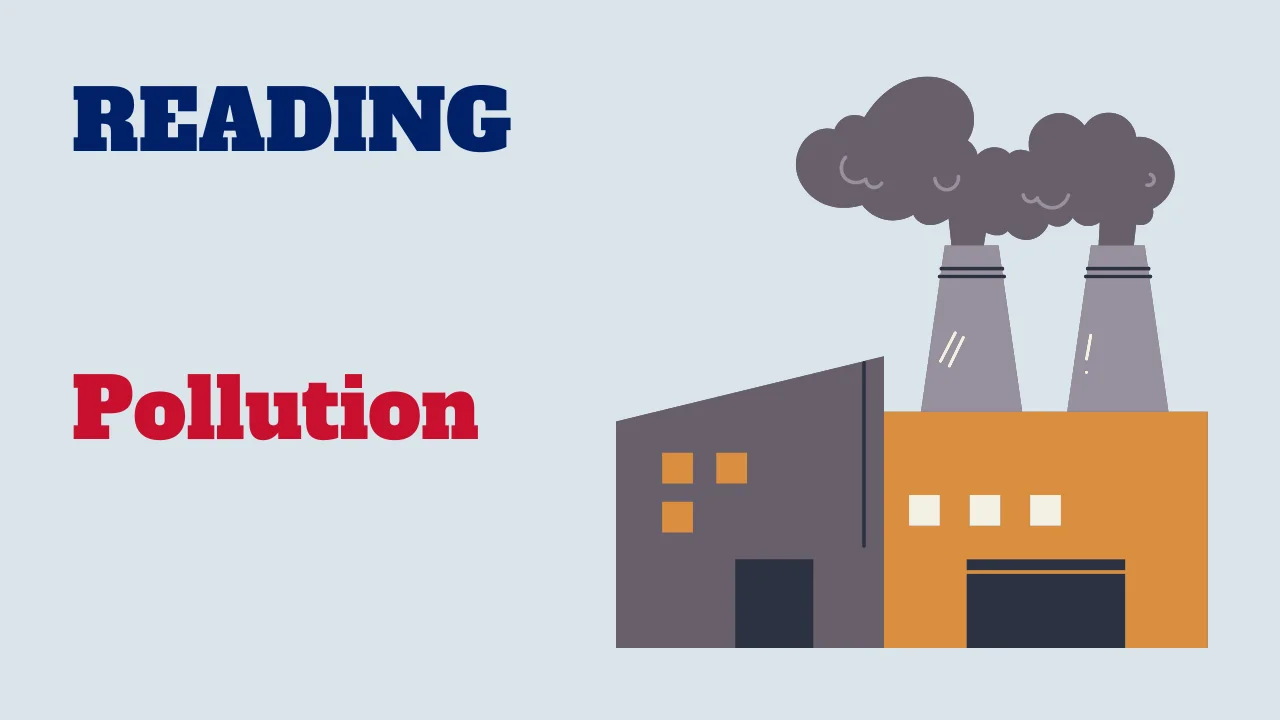Welcome to an investigation into the critical issue of pollution and its impacts on human health and the environment. In this reading activity, we’ll delve into the various forms of pollution, their sources, and the widespread consequences they have on both social and economic systems.

We’ll also examine the efforts undertaken at local, national, and international levels to mitigate pollution and safeguard our planet for future generations.
Text: Pollution
Pollution is the introduction of harmful substances or contaminants into the environment, causing adverse effects on living organisms and ecosystems. It is a pressing global issue that affects air, water, soil, and even noise levels, posing significant threats to human health, biodiversity, and the sustainability of the planet.
Air pollution is one of the most pervasive forms of pollution, resulting from emissions of pollutants such as particulate matter, nitrogen oxides, sulfur dioxide, and volatile organic compounds from industrial activities, transportation, and energy production. These pollutants contribute to respiratory illnesses, cardiovascular diseases, and climate change, impacting millions of people worldwide.
Water pollution occurs when pollutants enter water bodies such as rivers, lakes, and oceans, contaminating drinking water sources and aquatic ecosystems. Industrial waste, agricultural runoff, sewage discharge, and oil spills are major contributors to water pollution, leading to the decline of marine biodiversity, the spread of waterborne diseases, and ecological imbalances.
Soil pollution, also known as land pollution, occurs when pollutants accumulate in soil, degrading its quality and fertility. Pesticides, heavy metals, industrial chemicals, and improper waste disposal are common sources of soil pollution, which can harm plants, animals, and humans through contaminated food and water sources.
Noise pollution refers to excessive or disruptive noise levels that disturb the environment and interfere with communication, sleep, and overall well-being. Urbanization, industrial activities, transportation, and recreational events are primary sources of noise pollution, contributing to stress, hearing loss, and other health problems.
Pollution poses multifaceted challenges that require concerted efforts at local, national, and global levels to address. Solutions include implementing cleaner technologies, improving waste management practices, enforcing environmental regulations, promoting renewable energy sources, and raising awareness about sustainable consumption and lifestyles.
Individual actions, such as reducing energy consumption, conserving water, recycling, and using eco-friendly products, also play a crucial role in mitigating pollution and preserving the health of the planet for future generations. By working together to reduce pollution, we can create a healthier, more sustainable environment for all living beings.
Comprehension questions
Congratulations on completing the exploration of the pressing issue of pollution and its far-reaching impacts! By understanding the various forms of pollution, their sources, and the efforts undertaken to mitigate them, we recognize the importance of collective action in preserving our planet for current and future generations. Let’s continue to advocate for sustainable practices and policies to ensure a healthier and cleaner environment for all.



